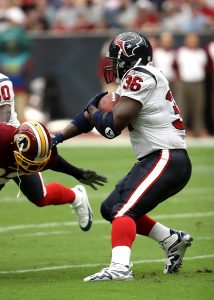Over 90% of Pro Athletes Disagree!!! 
According to a widely distributed 2022 report, supplements are “useless for most people.” The report was widely parroted in the usual places—U.S. News and World Report, New York Times, Yahoo News, and other mainstream media outlets.
Ignoring the fact that the research was based on 84 handpicked studies—while ignoring thousands of studies with opposite conclusions—one might wonder how the dubious “findings” play out in the rest of the world. But why would anyone be surprised at what was printed? After all, it is the mainstream media. And, contrary to what the mainstream media professed, in the real world almost everyone has faith in supplements.
Faith in supplements abounds!!
In 2019 a frustrated American Osteopathic Association reported that their polling showed 86% of Americans utilized supplements—against the organization’s own recommendation.
Even in the professional organizations charged with distributing the pharmaceutical companies’ drugs, the vast majority believe in the benefits of supplements. A 2021 survey of licensed pharmacists found that 80% of them take supplements. Moreover, 72% of them reported they regularly recommend a daily vitamin routine to patients as a “best practice for well-being.” Somehow that recommendation strangely disappeared a few years ago.
Now a new survey of pro athletes has found that they, also, are big believers in the benefits of supplementing. According to the survey, conducted in Spain, 92% of professional triathletes follow a supplement regimen of some kind.
Moreover, most of the triathletes stated they followed a supplement regimen on the advice of the experts that were paid to advise them. We include the addition of supplements in every program we develop for all our professionals, elites, collegiates, high school and weekend warrior athletes. No group is excluded.
42% reported making the decision based on the recommendation of a dietitian/nutritionist; 41% stated they did it on the advice of their coach; and 16% indicated it was on the advice of a physical trainer.
Apparently, these sports professionals didn’t get the memo that supplements were “mostly worthless.” Just sayin’.
In the Spanish study, researchers were interested in determining which “Sports Supplements” were consumed the most.
Sports Supplements—also called “performance supplements”—is a category that has evolved over time. Though many of the supplements used by athletes are also used by regular consumers, consistent use of particular supplements by athletes was recognized and eventually “Sports Supplements” became its own niche category.
Athletes Prefer Research-backed Nutrients
Researchers conducting the Spanish triathlete study note that most of the athletes in the study were consuming Group A Sports Supplements. This Group A designation comes from the Australian Institute of Sport, which divides Sports Supplements into four categories based on the level of scientific evidence—Groups A, B, C, and D.
This means most athletes were and are using supplements that contained the most widely accepted evidence-based nutrients. I know this to be true for those athletes under our care as our commitment is to enable them to achieve “the best performance of their life!”
The nutrients in Group A include:
Macronutrient Supplements, Isolated Protein Supplements, Probiotics, Nitrate/Beetroot Juice, ß-Alanine, Creatine, Caffeine, Sodium Bicarbonate, and Glycerol.
Also included in Group A are some critical vitamins and minerals:
Multivitamin, Vitamin D, Iron, Calcium and Zinc.
The National Institutes of Health briefly describes the category this way: “Performance supplements can contain many ingredients—like vitamins and minerals, protein, amino acids, and herbs—in different amounts and in many combinations. These products are sold in various forms, such as capsules, tablets, liquids, and powders.”
Study details
To conduct the study researchers at the University of Alicante in Spain conducted a cross-sectional review of data gathered from triathletes who were members of triathlon federations and clubs throughout Spain. The age of the study subjects ranged from 25 to 44.
From the total sample, 92% of the athletes reported consuming Sports Supplements.
Of the supplement-taking group, 82% said they consume Sports Supplements to improve performance. Meanwhile 31% said they used Sports Supplements to take care of their general health.
Sixty-four percent of athletes reported that they consumed Sports Supplements specifically during training and competitions.
Another noteworthy finding was that the athletes’ supplement consumption level increased in correlation with the competition level: 91% of regional athletes reported taking supplements; 92% of national-level athletes took supplements; and 96% of the athletes competing internationally took supplements.
The authors of the study noted some limitations of the research.
Most notably, the study was conducted on triathletes, and the researchers hypothesized that supplemental intake by triathletes may be high in comparison to other sport disciplines due to the high physiological requirements. However, earlier supplement research at the same university found that usage was even higher in at least one other athlete group—mountain runners.
Another limitation was that the study was conducted in a single country, so results may not be representative of athletes in all countries.
The study was published in Nutrients in February 2023.
The moral of this post is this, regardless of what role you occupy in life, your body is no different than that of the highest paid athlete, both are “fearfully and wonderfully made!” And as such, both deserve the same quality of care.
God bless,
DrB
Sources: Nutrients, National Institutes of Health, US Preventive Services Task Force/JAMA Network, American Osteopathic Association.



